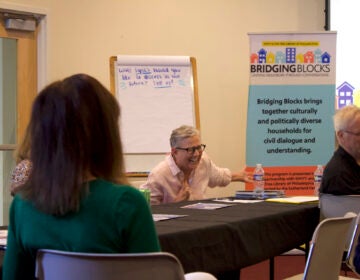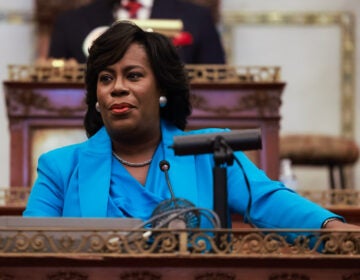Juneteenth Festival commemorates Germantown’s Underground Railroad past
-
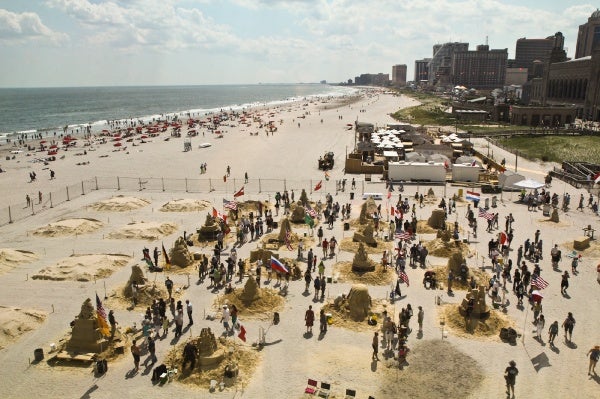
-

-

-
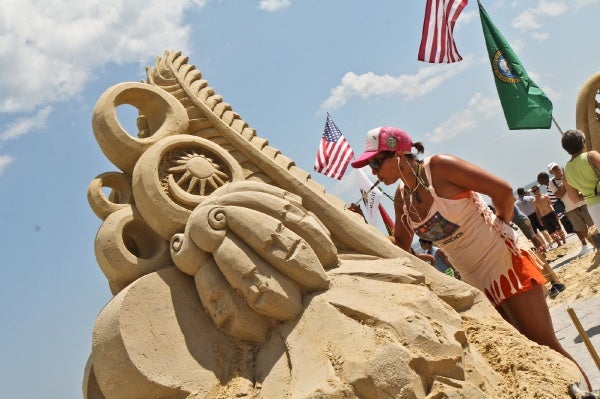
-

-
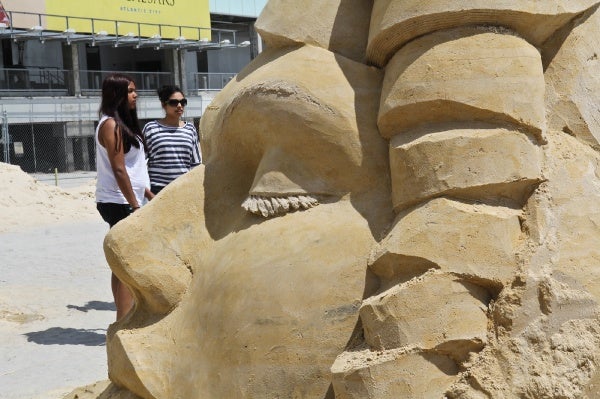
A sculpture by Damon Langlois of Victoria, British Columbia, Canada at last year's festival. (Kimberly Paynter/WHYY)
-

-

-

-

-

-
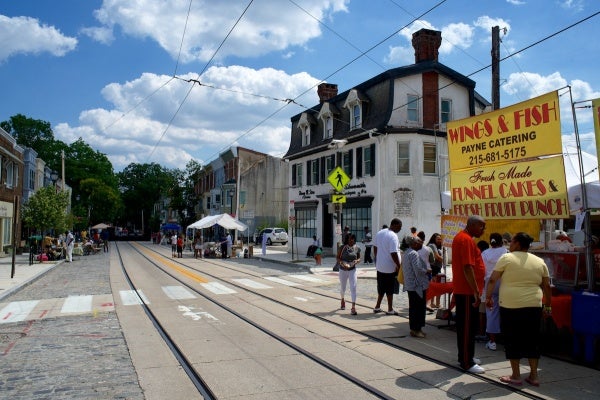
-

-

-

-
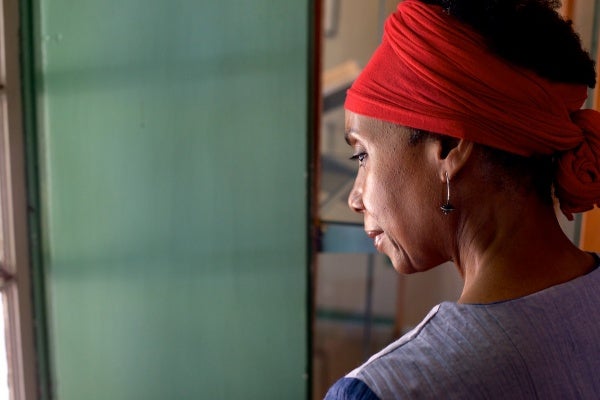
-

-

-

-

-

-

-

-

-

-

-

-

-

On a perfect early-summer Saturday, Germantown welcomed its annual Juneteenth Festival which offered everything from remembrances of abolition to live music, iced tea and funnel cake along Germantown Avenue.
First held in Galveston, Texas on June 19, 1865 in honor of the abolition of slavery, Juneteenth continues to be celebrated in towns across America to commemorate the arrival of news of the Emancipation Proclamation.
To kick off this year’s local “National Freedom Day” celebration, some attendees gathered for a “Freedom Walk,” starting at the historic placard that marks America’s first anti-slavery protest in 1688.
Insightful panel discussion
Others headed for the Germantown Mennonite Meetinghouse to hear true stories of Philadelphia’s abolitionists and the people they harbored.
The “William Still‘s Journal C Manuscript and the Underground Railroad” panel event was moderated by Germantown Mennonite Historic Trust board member Craig Stutman.
The discussion focused on the writings of Still (1821-1902), the “Father of the Underground Railroad” and escape-route station master. He may have been inspired to keep records of the people he helped when he happened to meet his long-lost brother, a former slave, in Philadelphia.
Despite the risks of recording this information in the days of the Fugitive Slave Act, Still interviewed hundreds of escaped slaves, preserving their names and companions, ages, points of origin, destinations and life stories.
“Thank God for William Still,” said panelist Charlotte Blake Alston, a singer and storyteller, noting that nobody else recorded these vital pieces of American history.
Panelist Christopher Densmore, Swarthmore College’s Historical Library Curator, noted that since the vast majority of Philadelphia’s African American population was free as early as the 1790s, the city was “a very important center for black America.”
Still, many stories have not been documented.
“How we remember things tells us more about ourselves than the stories we’re telling,” said Densmore, noting that the focus of Underground Railroad stories has too often idolized white abolitionists rather than the extraordinary risks and journeys of the people they helped.
Quakers and abolition
For her part, Alston, who created “The Good Raised Up” choral performance, urged a more nuanced perspective when it comes to Quakers and abolition.
While many Quakers were important figures in American abolition, “the debate raged for 100 years between Quakers about what to do” regarding slavery, she said, noting that the Historical Society of Pennsylvania has undertaken a new effort to digitize Still’s journals for universal public access.
Alston saw the Juneteenth panel, which included a question-and-answer session with the audience, as a good chance to “take these stories that don’t necessarily get in our textbooks” and share them with the community.
Johnson House performance
Later in the day came a premiere performance of dance, music and “soundscapes” at the Johnson House.
“Bearing Witness: the Johnson House Speaks Through Inquiry and Performance” was created for this year’s Juneteenth celebration.
Audience members packed the historic site for three free shows. There, performers Germaine Ingram, Leah Stein, Swabra Salim and Sabria Walker used the objects, walls, windows, furniture and stairways of the house in their unconventional music and choreography; violinist Diane Monroe added virtuosic live folk tunes.
“Everyone there was full of glee, at the Juneteenth Jamboree,” sang Ingram, a vocalist, dancer and choreographer.
“The audience response has just been wonderful,” said Ingram, who harbored worries that the crowd wouldn’t make its way down from the music stage and vendors a little way up Germantown Avenue.
Schoolroom crowd
Across the street, Concord School House president John Pollack welcomed a steady stream of visitors to the restored Germantown Avenue schoolroom. Slates and early-19th century schoolbooks lay open on the old desks for visitors to touch.
Pollack said many people, from Germantown and beyond, were “wowed” that this historic schoolhouse is still right there, as well as the cemetery next door that is “as old as Germantown,” with graves of Revolutionary War veterans.
“To allow a child to sit at a desk that’s 100 years old or more is a different way of experiencing history than looking at something in a glass case,” he said.
Other Juneteenth events featured Hidden City’s Germantown Town Hall and Harriet Tubman and Henry “Box” Brown re-enactments, live music on two stages and community fairs and markets.
WHYY is your source for fact-based, in-depth journalism and information. As a nonprofit organization, we rely on financial support from readers like you. Please give today.


